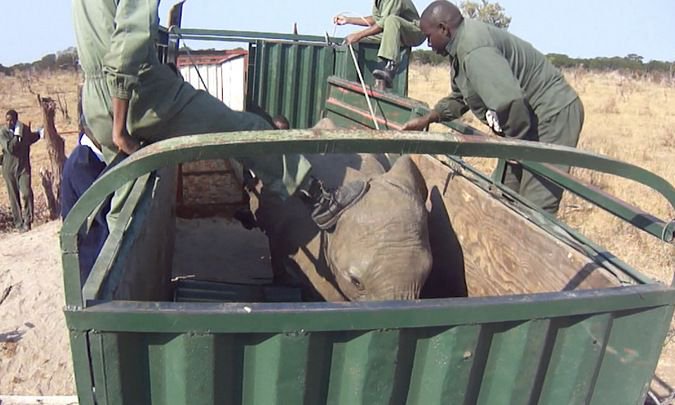The People and Earth Solidarity Law Network (PESLawyers) has launched an application for an interdict with the High Court on Zimbabwe’s trade in wild elephants. The lawyers have since served the court papers on the respondents who are the Zimbabwe Parks and Wildlife Management Authority (Zimparks), The Director-General of Zimparks (in his official capacity) and the Minister of Environment, Tourism and Hospitality Industry. The application under Case Number 4289/19 was launched on 22 May 2019. PESLawyers filed the papers through their associate lawyer Mr Webster Jiti of Zimudzi and Associates Legal Practitioners. The court application follows a three-month struggle by PESLawyers and other groups to compel Zimparks to stop planned export of over 30 young elephants and to release information.
The application calls for the respondents to release all information relating to the planned export of elephants from Zimbabwe to any foreign country, especially information on the buyers, numbers, specific destinations, selling prices. The action comes at a time several environmental and animal rights groups are calling for the preservation of the African Elephant and scrutiny on the treatment of exported animals in zoos outside Africa. There have also been recent controversial decisions by neighbouring countries such as Botswana to lift a ban on elephant hunting.
In the founding affidavit laying out the action, PESLawyers’ Director Mr Lenin Chisaira declared that PESLawyers’ main interest in the elephants export debate emanated from the organisational objective of ensuring the implementation of relevant environmental rights and laws. These laws include the Constitution of Zimbabwe, Prevention of Cruelty to Animals Act, the Environmental Management Act and the Parks and Wildlife Act. All actors, particularly the State, corporates and other environmental users for the general good of the public must observe the laws. ‘Zimparks has initiated the process of capture and transportation of young elephants to China. These processes are shrouded in mystery, and the Respondents have failed, refused and neglected to render information’, he said, ‘In refusing to share information, Zimbabwe violates domestic law and treaty obligations to the Convention on International Trade in Endangered Species of Wild Fauna and Flora (CITES).’
The court period followed months of correspondence with Zimparks who at most made vague responses. The environmental lawyers even initiated a parliamentary petition on wildlife trade transparency. The petition was supported several environmental and conservation groups such as the Zimbabwe Elephants Foundation, Voices for African wildlife, Tikobane Trust, Sibanye Animal Welfare and Conservancy trust, Veterinarians for Animal Welfare Zimbabwe and the Zimbabwe Youth Biodiversity Network.
